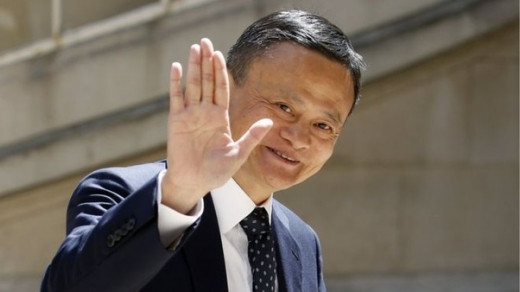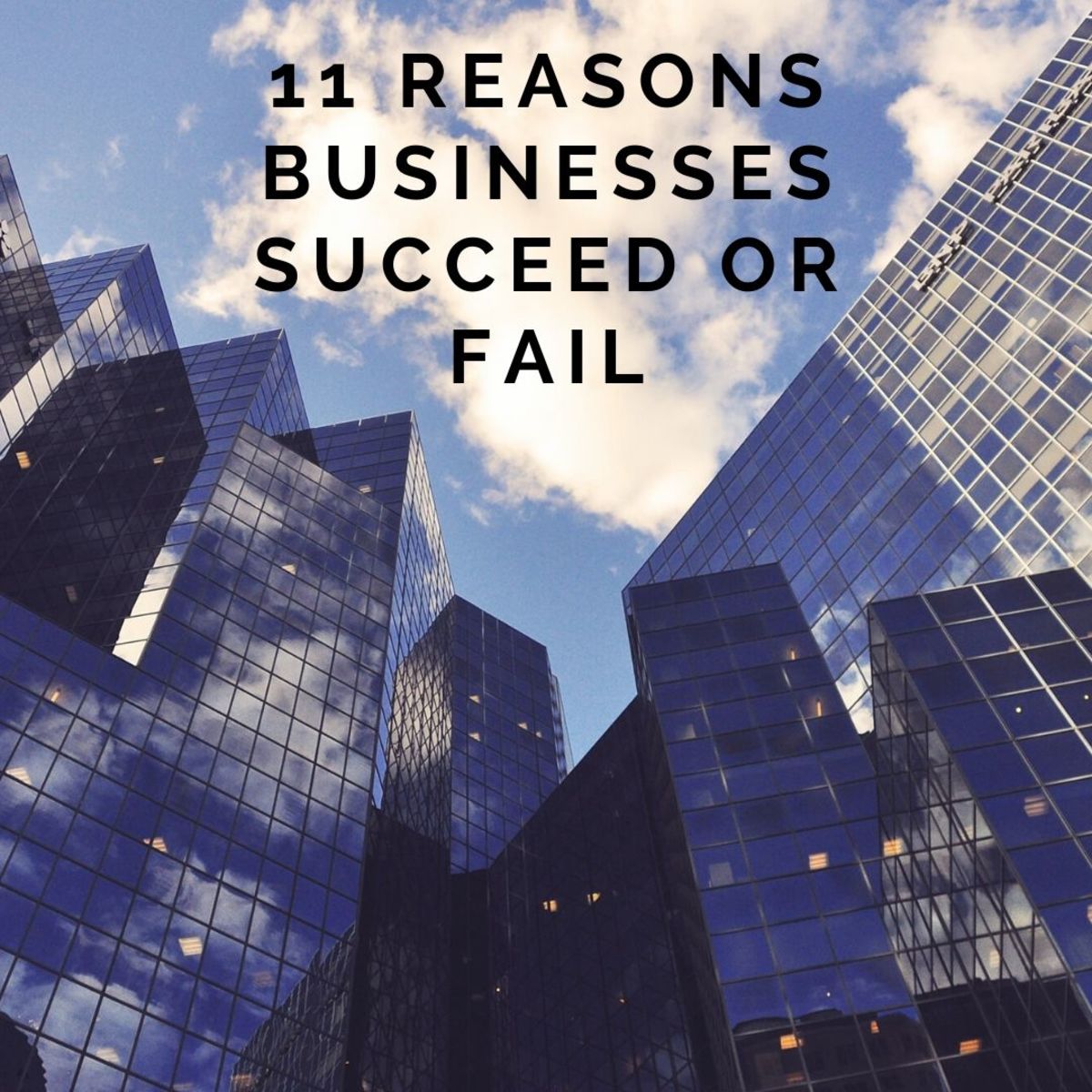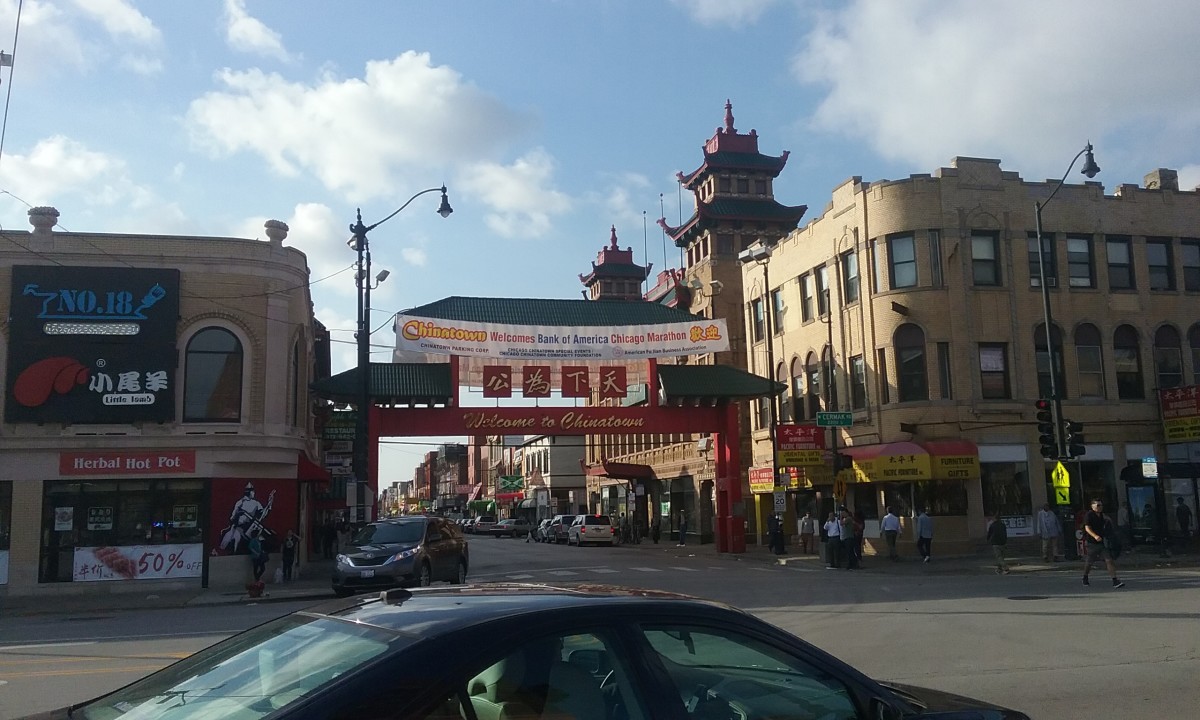- HubPages»
- Business and Employment»
- Small Businesses & Entrepreneurs»
- Entrepreneurship
Entrepreneurial Lessons from Giants: Jack Ma
Jack Ma | Born in 1964

1. A brief on Jack Ma
Ma Yun (Jack Ma) was born into a low-income family on September 10, 1964, in Hangzhou Zhejiang, China. However, despite his many apparent limitations and litany of record-breaking failures, he became one of the world's billionaires in his 30s. This feat took place within a short period. He was the founder of the Alibaba Group, an e-commerce empire whose revenue exceeds the combined turnover of eBay and Amazon.com. As at March 2019, he was the richest man in China with a net worth of about US$38.3 billion. Jack Ma has received several global level awards and recognitions from such institutions as the United Nations, the World Economic Forum, Fortune, and China Central Television (CCTV). He also received honorary degrees of Doctor of social sciences by the University of Hong Kong and a Tel Aviv University. In 2014 he was ranked as the 30th most powerful person in the world in an annual ranking published by Forbes. In 2019, Ma, alongside other 16 persons where recognized by the United Nations as the advocates for sustainable development goals (SDGs).
2. Why the interest in Jack Ma?
Ma's story is an incredibly inspirational one which explains its frequent use as a case study for mentoring entrepreneurs. He is one of the real examples of those who fought their way to ultra-financial success without any support whatsoever. He proved that authentic entrepreneurial action is superior to financial capital in achieving business success. As a poor boy, his survival was mostly dependent on the income he earned from the tourist guide services that he rendered. Starting from the age of twelve and for another eight years, he rode on his bicycle daily to Hangzhou' West Lake District to meet tourists whom he provided with guide services for free to enable him to learn the English language. After graduation from the University, he worked as an English teacher for five years and earned approximately ten British pounds (about twelve dollars).
Nothing accentuates the inspiration in the story of Jack Ma than his life which was punctuated by failures and rejections. The most retold ones are as follows:
- He could not pass a primary school test two times
- He failed the middle school test three times
- It took him four years to pass the Chinese entrance exams which held once a year
- He scored 1 out of 120 points on the math portion of his college entrance exam
- He failed the college entrance exam two times
- He was one of 5 applicants to the police force and the only one to be rejected
- He was one of 24 applicants that applied for a KFC manager position, and the only one rejected
- Jack also went for the job of a waiter at a hotel but was denied employment on account of his short stature
- He asked for admission into Harvard University and rejected those ten times
- Even in the early success of Alibaba, Ma was told by Silicon Valley venture capitalists that his business model was unprofitable and denied funding
Despite all these heartrending failures, Jack Ma still fought his way into the billionaire class and is one of the rare living examples of authentic entrepreneurship in today's world.
3. Lessons in entrepreneurship
How did Jack Ma succeed despite all these limitations? Where did he draw his inspirations from and what quality traits drove him to success? Seven factors are discernible. They are:
a. Entrepreneurial alertness
b. Prompt decisions and actions
c. Zero acceptance of failure
d. Hard work and perseverance
e. Clear dreams and vision
f. Robust knowledge of the local market
g. Minimal intellectual distractions
a. Entrepreneurial alertness
Even as a twelve-year-old, Jack Ma identified entrepreneurial opportunities for earning income by guiding tourists as well as learning the English language that he so badly needed. Jack was also among the first persons in the world to discover tremendous entrepreneurial opportunities on the Internet as a business platform and no wonder why he relentlessly pursued the development of e-commerce. It was his instantaneous discovery of a massive information gap in China during his first encounter with the Internet that gave him his first significant business push. He acted immediately to provide information about China and its products to the rest of the world. Finally, it is debatable that why Jack had many failures in securing employment was that he was never genuinely formed as a hard-working employee but on the contrary, somewhat mentally wired to hire hard-working people as an employer.
b. Prompt decisions and actions
Jack takes actions promptly. For instance, he did not waste time to fill the information gap that he found about China and its products on the Internet. Together with his wife and a friend, he immediately initiated fundraising exercise for the sum of twenty thousand dollars to start the first company he named China Yellow Pages which earned US$800,000.00 within its first three years of coming into existence. The company was to create websites for companies. Jack Ma's story is replete with prompt decision-making and acting with speed in speedily taking advantages of opportunities that he discovered.
c. Zero acceptance of failure
More than any other factor, Jack Ma's zero acceptance of failure was perhaps the sturdiest of the strengths that helped him to speedily and successfully ride to the billionaire club. For instance, when Jack woefully failed his first attempt at gaokao by scoring 1/120 in maths, he did not give up. He wrote the exam again and scored 19. Even though that was another woeful failure, Ma did not give up. It was when he retook it the next year and scored eighty-nine that he gained admission into the Hangzhou Teachers College. Besides, it could only be one who determines to reject failure that would bother himself repeatedly applying to enter Harvard University after ten successive failures and rejections. But Ma persisted for up to ten times. Additionally, even though a government-funded company later acquired his first company, China Yellow Pages, when it did not turn out as expected, he did not give up his ambition.
d. Hard work and perseverance
Having zero acceptance for failure invariably means extraordinary hard work and perseverance. But it can imply much more than that. Although Ma never really gave up, he always created a filler that would enable him to sustain his hope and optimism. For instance, when he failed maths the first time, he was so upset with his failure that he took up a menial job of delivering magazines from printers to the Hangzhou train station. Similarly, for nine years, Jack embarked on forty-five minutes daily bicycle ride to provide tourist guide services as well as learn the English language in return. He kept working hard and persevering in the face of apparent difficulties and frustrating rejections.
e. Clear dreams and vision
Ma's clarity of vision is unique. He knew what he wanted. He strived against the currents of frustration and failures to get what he wanted. For instance, after being rejected ten times by Harvard University, Jack Ma remarked that one day he would teach there. And truthfully, he was a keynote speaker at the Stanford University which was one of the universities that rejected him. In line with the pursuit of his vision, when in 1994, Jack Ma heard about the Internet, he made up his mind to know more about it. In 1995, he went to the United States and was introduced to the Internet by his friend. He did not allow the vision to die because he could not access it in China. Again, his vision had always been to improve the global e-commerce system, and that was what he eventually did. From 2003 he founded Taobao Marketplace, Alipay, Ali Mama and Lynx.
f. Robust knowledge of the local market
Jack Ma understood the Chinese market. That understanding was what gave a fillip to the gap that he quickly identified on the potential globalization impact of the Internet on the Chinese market. That knowledge also helped in Alibaba's two-time (October 1999 and January 2000) win of a total of twenty-five million dollars venture capital investments that were to improve the Chinese domestic market.
g. Minimal intellectual distractions
Ma recognized that his weakness in mathematics was never going to be an obstruction to his becoming a billionaire. Till date, he appears not to have paid attention to the subject of mathematics. He concentrated instead on what would help him. The first was the English language and the second was the Internet. It was these two intellectual domains that were of importance to him, and they were the ladder that he used to climb to the top.
4. Conclusion
Poverty, physical weaknesses, weak educational weaknesses and numerous rejections may pose as hindrances to success, but they cannot stop a determined man. Success requires a will that is made up for that purpose and honed to actualize a vision and dream. The effect is that one becomes very alert to the opportunities and better equipped to take advantage of it. That summarizes the story of Jack Ma, the enigma.








